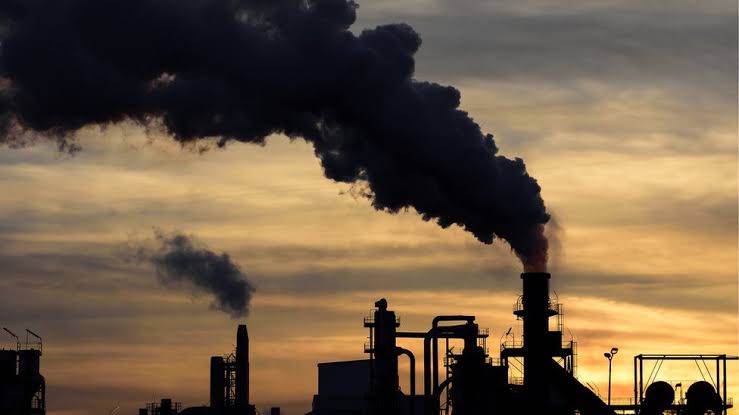EU supports Nigeria’s methane emissions reduction efforts

The European Union, through UNEP’s International Methane Emissions Observatory, is building capacity among stakeholders and negotiators in Nigeria’s climate sector to address methane emissions.
Marci Paranski, programme manager officer of UNEP International Methane Emissions Observatory, stated this at the capacity-building workshop on methane for the Nigerian oil and gas sector on Tuesday in Abuja.
Ms Paranski said that the workshop marked the beginning of activities in Nigeria for the Nigeria Emissions Reduction Programme.
The project, funded by the EU Delegation to Nigeria and implemented by UNEP’s IMEO, aims to establish a national baseline for methane emissions in Nigeria, covering oil and gas, agriculture, and waste sectors.
Ms Paranski added, “Nigeria is pioneering a groundbreaking initiative in Africa, aiming to establish a national baseline for methane emissions. This endeavour seeks to understand the contributions of the oil and gas sector, agriculture, and waste to national methane emissions over a one-year period.
“To achieve this, we will collaborate with various scientific partners within and outside Nigeria to scope out the study. Our capacity-building activities will include today’s oil and gas training workshop, among others. We are working closely with partners at the National Council on Climate Change, the European Union Delegation, Stakeholder Democracy Network, and Carbon Limits.”
According to her, this is just the beginning, as this project spans three years and will encompass multiple activities.
Nkiruka Maduekwe, CEO of NCCC, commended Nigeria’s commitment to reduce methane emissions by 2030.
She stated, “Building on this momentum, the government introduced methane guidelines and gas flaring prevention regulations in 2023 to regulate the sector and reduce methane emissions.
“Methane is a short-lived yet extremely hazardous pollutant, earning it the label ‘super pollutant.’ To address this, the NCCC Secretariat, supported by the European Union and UNEP, is driving a capacity-building programme.
“This programme is crucial, as understanding the issues is essential to implementing research findings and effectively reducing methane emissions.”
She explained that the capacity-building programme would help identify needed infrastructure, implement regulations, and utilise UNEP’s research outputs.
(NAN)
We have recently deactivated our website's comment provider in favour of other channels of distribution and commentary. We encourage you to join the conversation on our stories via our Facebook, Twitter and other social media pages.
More from Peoples Gazette

Agriculture
FG tasks ECOWAS on leveraging financing strategies for agroecology
The federal government has urged stakeholders in the agriculture and finance sectors in the West Africa region to leverage financing strategies to enhance agroecology practices

Politics
Katsina youths pledge to deliver over 2 million votes to Atiku
“Katsina State is Atiku’s political base because it is his second home.”

Health
Nigerian men warned too much sex, alcohol can cause prostate cancer
A chief consultant at the Federal Medical Centre, Abeokuta, noted that prostate cancer is one of the leading causes of death, particularly in men above 40 years old.

Economy
African Caucus, IMF pledge to strengthen continent’s economic resilience
The African Caucus and the International Monetary Fund have reaffirmed their commitment to strengthening the continent’s economic resilience.

Africa
43 students hospitalised for suspected food poisoning in South Africa
On October 6, six children died from suspected food poisoning in Johannesburg, and over 130 students were hospitalised for similar reasons earlier this month.

Health
Nutrition: Committee pushes for higher allocation in Kaduna’s 2025 budget
The Kaduna State Committee on Food and Nutrition says it will push for higher allocation for ministries, departments and agencies in the 2025 budget.

Africa
Zambia voices concern over escalating conflicts in Sudan
Zambia has expressed concern over the ongoing conflict between two warring factions in Sudan, which has triggered a devastating humanitarian crisis.







